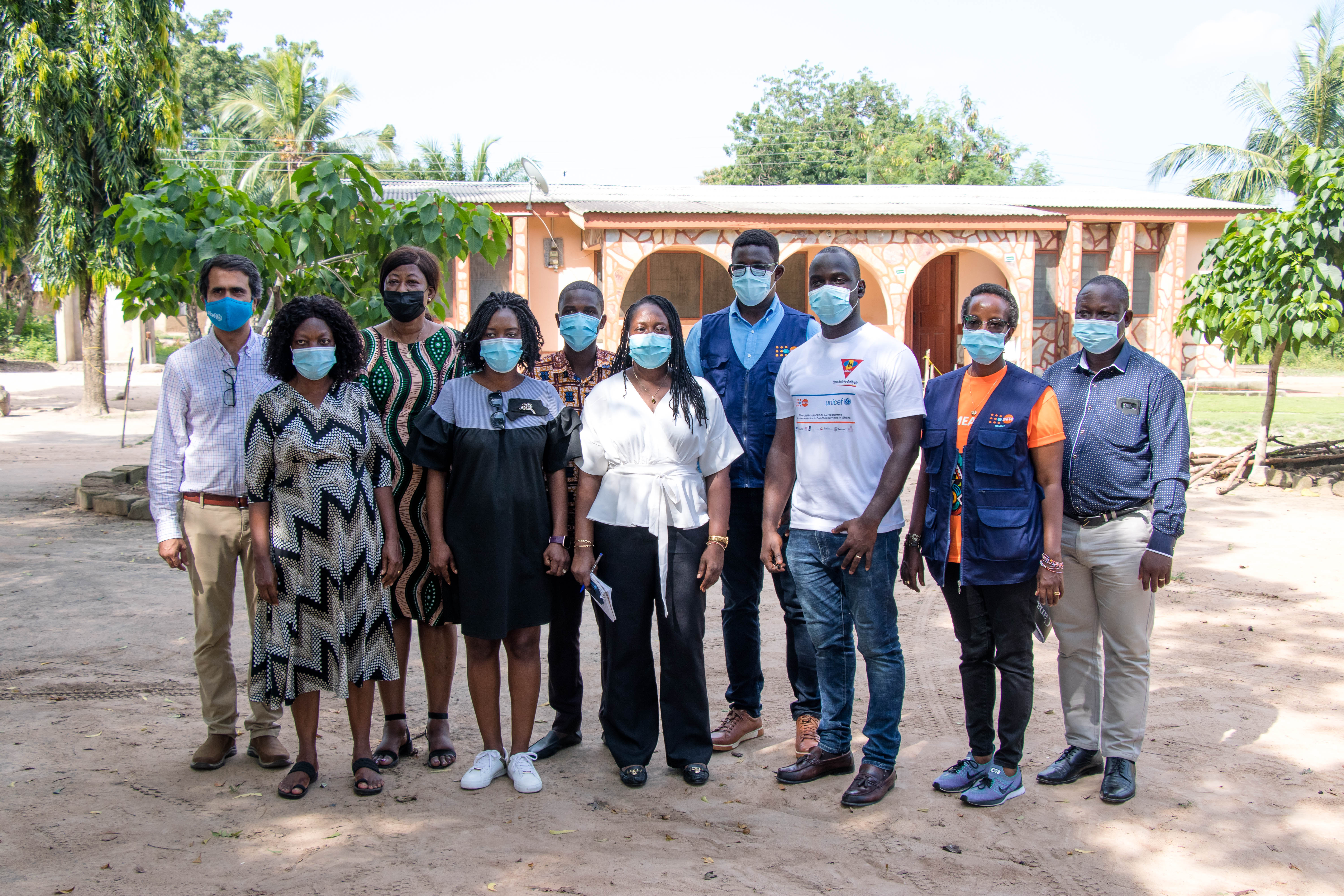A programme to educate and empower adolescent girls has resulted in a downward trend of teenage pregnancy in some districts in the Volta Region.
For instance, for the past two years, no teenage pregnancy has been reported in Bakpa Kpokope, a community in the Central Tongu district in the region due to the implementation of the programme.
The mentorship programme, dubbed Adolescent Girls Programme (AGP), which began in 2018, focuses on providing guidance and leadership skills for adolescents to boost assertiveness, positive decision making and positive peer influencing in their communities.
The United Nations joint AGP, targeted at adolescent aged 10 to 19 years, is being implemented in five districts of the region with funding from Canada.
Adolescent Girls Programme
The programme is delivered through schools and health facilities as well as through community mobilisation led by Civil Society Organisations (CSOs).
It involves the formation of Adolescent Health Clubs through which the Ghana Education Service and the Ghana Health Service deliver a mix of community and school based approaches targeting adolescents.
The CSO led community mobilisation and adolescent empowerment interventions work to promote Adolescent Sexual and Reproductive Health across the implementation districts. An example of this is the ‘Safe and Protective Environment for Adolescent Development (SPREAD)’ implemented by International Needs, Ghana project which works to reduce adolescent pregnancy, abuse, and exploitation at the community level by promoting a safe, protective and enabling environment for adolescent boys and girls.
In addition, a Girls Iron Folate Supplementation (GIFTS) programme, provide adolescent girls with weekly iron and folic acid tablets free of charge to help prevent anemia, while a ‘Safety Net Programme has also been designed to improve the access and quality of health services and to strengthen the linkages between social services to better support pregnant adolescent girls and adolescent mothers.
Furthermore, community watch committees made up of parent groups have been set up to support adolescents’ access to sexual and reproductive health services, advocate against harmful cultural and social norms and educate other parents on the rights of children among others.
Steering Committee
A one-day field visit of the steering committee of the AGP to five communities in the South Tongu district, indicated that the programme had achieved successes.
During an interaction with beneficiaries of mentorship programme at Mafi Agoe, 16-years old Grace Lartey, a form two Junior High School student said the adolescent benefit from education on menstrual hygiene, adolescent reproductive sexual health and rights sexual and gender based violence and assertiveness.
“We have a School Health Club and the members meet at the Community-based Health Planning and Services (CHPS) centre, every Sunday to discusses issues such as prevention of teenage pregnancy and the benefit of staying in school,” she added.
 PHOTO: Dr. Archibald Letsa (standing) speaking at the meeting of the steering committee and the Volta Regional Coordinationg Council (VRCC)
PHOTO: Dr. Archibald Letsa (standing) speaking at the meeting of the steering committee and the Volta Regional Coordinationg Council (VRCC)
Debriefing meeting
At a meeting with the Volta Regional Coordinating Council (VRCC) to discuss the observations of the steering committee after the visit, the Volta Regional Minister, Dr. Archibald Letsa said despite the successes of the AGP, the region still had to intensify efforts to significantly reduce teenage pregnancy in the region.
This, he said, would require a scale-up “to extend this laudable intervention to the other districts in the region.”
Dr. Letsa stressed that it was important to empower the adolescent girls to achieve their potential in life as the achievement of the female gender would benefit the whole country.
 PHOTO: The steering committee members during the monitoring visit.
PHOTO: The steering committee members during the monitoring visit.
In his comments, the Senior Development Officer of Global Affairs, Canada, Mr Eric Chimsi commended the strong coordination and co-operation among the partners of the programme.
“There is good role sharing; no overlaps and a firm connection with the communities as well as good participation of the beneficiaries,” Mr. Chimsi observed.
He recommended that the project is extended to the other communities not covered and urged the VRCC to raise domestic resources to scale up in order to strengthen the capacity of the adolescent girls to take on their own future.
The Deputy Representative of the United Nations Population Fund Dr. Agnes Ntibanyurwa noted that inspite of the success there were still challenges with coordination among the partners.
She emphasised that the partners need to address the challenges of working together to strengthen the empowerment of girls, which will result in the reduction of teenage pregnancy and allow them to achieve their goal and purpose in life.
Mrs Thywill Eyra Kpe, the Regional Director of the Department of Gender of the Ministry of Gender, Children and Social Protection, said the programme works with other public institutions like the Domestic Violence Victim Support Unit (DOVVSU) of the Ghana Police Service and the Department of Social Welfare to provide services to the beneficiaries of the programme.

PHOTO: The participants of the meeting
Source: graphic.com.gh